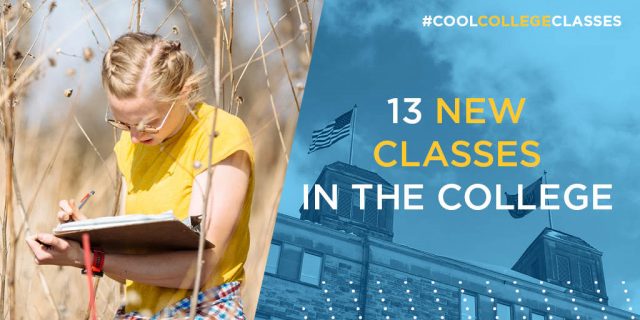
Want to spice up your schedule next semester? Whether you need to fulfill credits for your major or just want to branch out by learning about a topic in another field of study, make the most of your semester by taking a course that piques your interest. For some ideas, check out these 13 new College classes you can take in Fall 2020.
ENGL 383 English – Cultural Rhetorics
How do cultural forces in society shape rhetoric? What’s the role of rhetoric in keeping social and political structures of power and oppression intact? And how can it give life to resistance and opposition to corruption? In ENGL 383, you’ll explore these questions through works of feminist, queer, critical race, and disability studies.
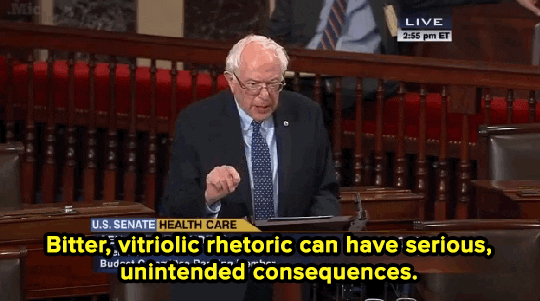
In this course, we will engage in the interdisciplinary study of cultural rhetorics, which is an approach to rhetorical study that considers the role of cultural forces in shaping the rhetorical practices of individuals, communities, and politics. Emphasizing feminist, queer, critical race, and/or disability studies work in rhetorical studies, this course will focus on the following questions: How does rhetoric enable the functioning of power, oppression, and resistance? How are cultural, political, economic, and ideological notions of identity, of the body, and even of the human rhetorically constructed? What counts as rhetoric, and who gets to decide what is worthy of rhetorical study? How do rhetorics of space, place, home, diversity/identity, and the nation influence culture, politics, and institutions? Satisfies: H Humanities (H)
FREN 380 French – The Middle Ages in the Modern Imagination
How have French and non-French literary and cultural content from the Middle Ages influenced modern pop culture, including fictional works of entertainment like Game of Thrones and The Chronicles of Narnia? Examine the lasting impact of the medieval era on the modern imagination in FREN 380.

Presents authentic French and non-French medieval literary and cultural content in the context of reflection on its role in modern popular culture. Themes may include Joan of Arc, Arthurian legend, the Chronicles of Narnia, Game of Thrones, and troubadour lyric. Taught in English. Satisfies: Goal 2 Outcome 1 (GE21), H Humanities (H)
FMS 474 Film & Media Studies – Videogame Theory and Design
What’s your go-to videogame? From popular recent titles like Call of Duty and 2K20 to classics like Mario Bros. and The Legend of Zelda, behind every game, there’s a lot going on. Take a deep dive into the design principles of videogames and gain game-building skills in FMS 474.

This course surveys the history and aesthetics of videogames and then provides a deep dive into the theory, design principles and techniques of game development on the Unity platform. Through assignments geared toward critical design, students gain the skills necessary for game-building in the areas of visual, narrative, game, level and sound design that comprise a typical development team. Although no prior coding experience is necessary, students may benefit from prior knowledge of C#, 3D modeling, or animation. Satisfies: H Humanities (H)
HIST 374 History – The History of Modern American Conservatism
Whatever side of the ideological spectrum you fall on, looking around today’s political landscape is likely to make you wonder: How did we get here? Find out how conservative movements during the early 1900s led to the partisan struggles and around-the-clock media coverage that dominate today’s headlines in HIST 374.

In this course students will gain an in-depth knowledge of modern American conservatism, primarily through the lens of political history. We will focus on the development of the conservative political movement from the 1930s through contemporary times. We will ponder several interrelated questions: how did conservatives build a movement capable of exercising political power; what do conservatives mean when they discuss equality, liberty, and freedom; how have conservatives conceptualized the role of the United States in the world; what role have ideas played in the conservative movement; how have different factions of conservatives fought for control of their movement while struggling to maintain political unity; and how have conservatives governed? Finally, we will contextualize modern American conservatism in the broader, dynamic political culture of the United States. Satisfies: Goal 3 Arts and Humanities (GE3H), H Humanities (H)
ITAL 330 Italian – Cinematic Rome
Breezy afternoon bike rides around the city, crowded neighborhood cafes, meticulously crafted works of classical architecture decorating street corners. The mere mention of Rome conjures up distinctive, cinematic images for many of us. For a closer look at daily life, politics, and social issues in contemporary Rome, check out ITAL 330.

A study of cinematic representations of daily life, diversity, urban landscape, and social and political issues in modern and contemporary Rome as presented in different genres. Taught in English. Satisfies: H Humanities (H)
JWSH 349/HIST 349 Jewish Studies/History – Antisemitism: A Long History
Using a variety of media from antiquity up to the 20th century, explore the beginnings, evolution, and historical, social, and religious ramifications of antisemitism in JWSH 349/HIST 349.
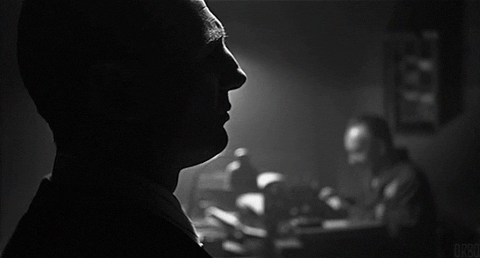
This course surveys the genesis, evolution and persistence of antipathy towards Jews and Judaism from late antiquity through the twentieth century, exploring its connections to religious and secular ideologies and its changing nature over time, place, and culture. Using primary source documents, religious and secular art and literature, the mass media and popular expression, the course examines how antisemitism was articulated and implemented, how Jews and Judaism were perceived and represented, and how Jews and Judaism responded to antisemitism.
LA&S 172 Liberal Arts & Sciences – Exploring Health Professions
Considering a career in a health care field? In LA&S 172, you’ll discover what skills are necessary for health care professions and learn about requirements for admission to degree programs in medicine, pharmacy, physician assistant, physical therapy, occupational therapy, and beyond.

Students will have the opportunity to explore health care career pathways broadly and will look more thoroughly at specific pathways of interest through experiential learning activities. Class-time will include discovering the knowledge, skills, and attributes typically seen in health care professionals and the requirements for gaining admission to the various professional degree programs. The course will also discuss important ethical issues in health care and the future direction of the field. This course is designed for KU students who are interested in pursuing a health care career. This includes but is not limited to: medicine, pharmacy, physician assistant, physical therapy, and occupational therapy. Satisfies: BGS Career Course (BGSC), U Undesignated elective (U)
ASTR/PHSX 191 Physics and Astronomy – Contemporary Astronomy
Are you fascinated by the expansiveness of the universe? Curious out the evolution of black holes, planets, and stars? Hungry for space exploration? You can explore the universe from right here in Kansas and learn about new discoveries in astronomy by taking PHSX 191.
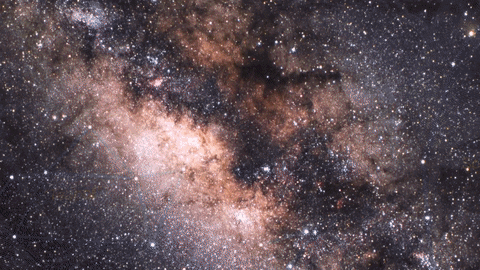
The structure and evolution of the universe, from nearby planets to distant quasars, are examined. Topics include recent discoveries concerning planets, stars, pulsars and black holes as well as their evolution, the structure of the universe today and how it will be in the future. The emphasis is descriptive rather than mathematical. Satisfies: Goal 3 Natural Sciences (GE3N), N Natural Science (N), NP Physical Sciences PC (NP)
POLS 687 Political Science – Introduction to Cyber Intelligence
In an era where election “hacking,” disinformation campaigns, and espionage are regular topics of conversation, understanding complex issues like cyber security and cyber intelligence is more important than ever. Get an introduction to the fundamental principles of cyber intelligence in POLS 687.

Course will provide instruction about the fundamental principles, impact and issues of cyber intelligence. Course will focus on cyber intelligence supporting operations in cyberspace (to include risk management functions, cyber defense, cyber espionage, and cyber-attack) as well as intelligence developed through cyberspace. Topics include cyber-threats, cyber defense, and cyber warfare as well as ethical and legal considerations. In addition to providing a foundation of understanding cyber intelligence within the context of the United States, this course will analyze cyber capabilities of nations and non-nation state actors. Learning outcomes for students include an understanding of the cyber intelligence cycle and structured analytic techniques in providing cyber intelligence products to national security and organizational leadership. Students will also gain an understanding of cyber threat actors and complexity of emerging threats.
PSYC 513/ECON 513 Psychology/Economics – Behavioral Economics
The decisions we make about our actions shape who we are and how others perceive us. So what drives our decision making? And can we make better decisions? Get an introduction to the science of decision making and how scholars from various disciplines have thought about the ways we make decisions by taking PSYC 513/ECON 513.

Decisions link our thoughts to our actions and as a result define who we are and who people think we are. This makes decision making a fundamental life skill. But, can we make better decisions? This course will introduce you to the science of decision making that has developed as scholars including biologists, economists, mathematicians, philosophers, psychologists, and others have sought to answer this very question. Over the course of the semester we will examine what we have learned so far such as how people predict and mispredict events, how people make decisions and how their decisions can be quite irrational from one perspective but simultaneously appear quite reasonable, how people bargain and why they sometimes choose to cooperate and other times not, and why negotiating can be so difficult.
PUAD 401 Public Administration – Administration of Justice
The administration of justice is much more complex than what we see during a 45-minute installment of cops-and-criminals TV drama. A myriad of multilayered, interconnected issues play come into play to determine how justice is carried out on a daily basis. In PUAD 401, you’ll gain a new understanding of justice in the courtroom and beyond, as well as the relationships between policing, imprisonment, racial profiling, immigration, and more.
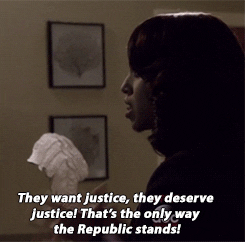
Examines the administration of justice and focuses on differential and discriminatory treatment in policing, criminal prosecutions, trials, sentencing, or imprisonment. Also considered are the basis and impact of racial profiling, harassment, arbitrary detention, and abusive treatment of members of racial and ethnic groups, immigrants, and/or other vulnerable groups by law enforcement, and disparate treatment by prosecutors and the courts. This course is offered at the 400 and 700 level with additional assignments at the 700 level. Not available to students with credit in PUAD 701. Satisfies: Goal 4 Outcome 1 (AE41), S Social Science (S)
WGSS 322/HIST 322 Women, Gender & Sexuality Studies/History – LGBTQ U.S. History, 1600-1900
How did early America’s diversity shape the history of same-sex love and desire? Take a journey through an alternative version of U.S. history by enrolling in WGSS 322/HIST 322, and discover how stories about LGBTQ identities unfolded in the British colonies from 1600-1900.
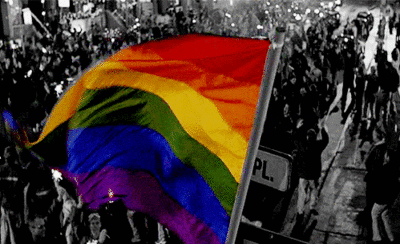
This course will take students on the first part of an exciting journey through an alternative version of U.S. history, exploring the experiences and treatment of men who love men, women who love women, and people with unconventional sexual and gender identities, telling this story as it unfolded in the British colonies established in North America, through the revolutionary period, and in the United States over the course of the nineteenth and twentieth centuries, and into the early twenty-first century. The first part of this two course sequence begins in the colonial period and ends around 1900 as modern categories of sexuality and sexual orientation came into existence. We will examine the ways in which individuals who craved intimacy with members of the same sex understood and negotiated their desires in an often hostile world. And we will consider how Early America’s remarkable diversity shaped this history of same-sex love and desire. Satisfies: H Humanities (H)
WGSS 331 Women, Gender & Sexuality Studies – Sex and Gender in New Media
In the age of Tinder, Match.com, and social networking sites for almost every community, the digital words we’ve built are shaping gender and sexual expression, relationships, and our understanding of ourselves and others in ways that we’ve never experienced as a society. Swipe right on WGSS 331 and explore how new media is affecting popular views about sex and gender.

How do gender and sexuality shape digital worlds, and how do these spaces shape our understanding of ourselves? This course analyzes new media like social networking sites, gaming, and dating apps. Students will explore the identities, relationships, and communities that have emerged across these platforms, with a focus on the possibilities and challenges they offer for gender and sexual expression.
For more information, check out KU’s schedule of classes. Ready to discuss options? College of Liberal Arts & Sciences majors can schedule an appointment with their advisors at http://collegeadvising.ku.edu/.